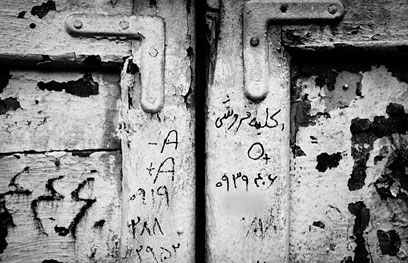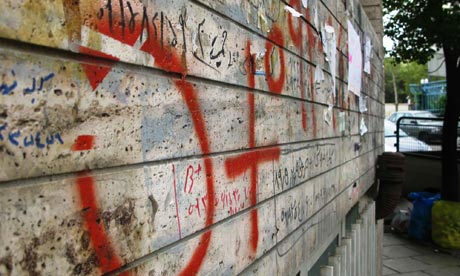Tina Rosenberg writes about the Iranian kidney market: Need a Kidney? Not Iranian? You’ll Wait.
Here's a part:
"Iran’s system has many deficiencies — not least that the very idea clashes with ethical norms observed in many other countries — and the program varies greatly from region to region. But its chief advantage is this: People who need kidneys get them rapidly, rather than die on the waiting list.
In the vast majority of cases, donors know in advance what they will be paid and receive appropriate screening and good medical care before and during the operation. And by getting patients new kidneys instead of keeping them on dialysis, the society saves a lot of money and avoids much misery.
The Iranian model suffers from insufficient funding, lack of follow-up for donors and other problems. But as waiting lists for kidneys grow around the world, Iran offers an important lesson: With good design and regulation, a system that pays donors need not be exploitative or immoral. In Iran, the legal kidney market has prevented the development of the abusive black markets and kidney tourism seen in other countries. As the kidney crisis intensifies, governments should look closely at what Iran has achieved.
For many people, the specifics of how a kidney market works are beside the point — the very idea of paying people to donate organs ends the debate before it starts.
One reason the idea of organ-selling is repugnant is that the human body has a special dignity. But if there’s an ethical barrier to selling the pieces, it was crossed long ago. We sell blood products, sperm and eggs. We pay people to do weird things to their bodies in risky clinical trials.
Perhaps kidney donation is different because kidneys do not grow back (although one healthy kidney is sufficient), and donation requires surgery. It is very safe surgery, but there is always some risk for donors. Perhaps the biggest moral issue in economically unequal societies is that a paid donor is almost always in dire straits, willing to do desperate things for money.
Yet people, especially poor people, take risks for money all the time. “We should ask ourselves why some people find accepting money to donate a kidney and save a life repugnant, but accepting money for being a policeman or miner or soldier — all of which are statistically riskier than donating a kidney — is O.K.,” said Mohammad Akbarpour, a research fellow in the Becker-Friedman Institute of the University of Chicago. “Is there a fundamental difference?”
Here's a part:
"Iran’s system has many deficiencies — not least that the very idea clashes with ethical norms observed in many other countries — and the program varies greatly from region to region. But its chief advantage is this: People who need kidneys get them rapidly, rather than die on the waiting list.
In the vast majority of cases, donors know in advance what they will be paid and receive appropriate screening and good medical care before and during the operation. And by getting patients new kidneys instead of keeping them on dialysis, the society saves a lot of money and avoids much misery.
The Iranian model suffers from insufficient funding, lack of follow-up for donors and other problems. But as waiting lists for kidneys grow around the world, Iran offers an important lesson: With good design and regulation, a system that pays donors need not be exploitative or immoral. In Iran, the legal kidney market has prevented the development of the abusive black markets and kidney tourism seen in other countries. As the kidney crisis intensifies, governments should look closely at what Iran has achieved.
For many people, the specifics of how a kidney market works are beside the point — the very idea of paying people to donate organs ends the debate before it starts.
One reason the idea of organ-selling is repugnant is that the human body has a special dignity. But if there’s an ethical barrier to selling the pieces, it was crossed long ago. We sell blood products, sperm and eggs. We pay people to do weird things to their bodies in risky clinical trials.
Perhaps kidney donation is different because kidneys do not grow back (although one healthy kidney is sufficient), and donation requires surgery. It is very safe surgery, but there is always some risk for donors. Perhaps the biggest moral issue in economically unequal societies is that a paid donor is almost always in dire straits, willing to do desperate things for money.
Yet people, especially poor people, take risks for money all the time. “We should ask ourselves why some people find accepting money to donate a kidney and save a life repugnant, but accepting money for being a policeman or miner or soldier — all of which are statistically riskier than donating a kidney — is O.K.,” said Mohammad Akbarpour, a research fellow in the Becker-Friedman Institute of the University of Chicago. “Is there a fundamental difference?”





